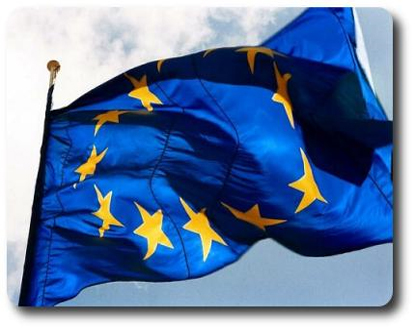Jean-Marie Cavada, Member of the European Parliament and President of the European Movement-France, was in Nice during the summit of presidents and heads of state. It was an opportunity to hear him speak about Europe… about what it is and, above all, what it should be.
For Jean-Marie CAVADA, the crisis we have been experiencing in Europe since 2008, which began in the United States, finds its origin in two factors: “We are living through a change of era characterized by globalization, and our structures have failed to evolve to cope with this increase in global competition.”
The crisis is oversized in terms of communication, but remains under-managed. In other words, our states have not made the necessary adaptation efforts, particularly in terms of investments in research.
The level of public debt in European states is at the root of significant imbalances, as demonstrated by the crises in Ireland, Greece, Spain, Italy, and Cyprus. French debt in particular amounts to 1,840 billion euros.
It is not the euro that is responsible for this situation. On the contrary, the common currency has constituted for the past 10 years a factor of price stability never before equaled by national currencies. The priority of the ECB has been indeed to ensure a low rate of inflation is preserved. The euro is therefore not the cause of price increases, as wrongly claimed by some political parties.
Jean-Marie CAVADA strongly opposes the speeches of parties advocating nationalism. Leaving the eurozone is what should not be done, as it would result in a significant devaluation of reestablished national currencies, as well as an economic decline of states, which are currently very dependent on external trade (external trade accounts for 60% among European member states).
Why does this high level of debt have such effects in Europe, when European states are not the most indebted countries (unlike the United States and Japan)? For Jean-Marie CAVADA, the explanation lies mainly in the absence of political coherence in Europe. The European Union resembles more a society of Nations than an organized state or supra-state entity.
Unlike the United States where the federal budget amounts to 1/5th of the US GDP, the European budget represents barely less than 2% of the wealth produced. This results in a very weak European intervention capacity. While the United States does not hesitate to support their companies at the slightest difficulty (Example of Boeing).
This situation mainly results from a lack of political authority. It is urgent to establish a true economic and financial governance, or even go further. Federal Europe is too often presented as a confiscation of the sovereignty of states. In fact, member states have already relinquished a significant part of what is considered as attributes of sovereignty, namely the power to mint money. As for European defense, it is not far from becoming a reality, given the reduction of resources that each state can allocate to it.
For Jean-Marie CAVADA, it seems essential to achieve economic governance by establishing a true convergence of European economies, a banking supervision system, as well as an economic recovery plan based on available activity and employment opportunities found, for instance, in nanotechnologies, biotechnologies, satellites, cognitive industries, and technology transfer methods.
It is also urgent for Europe to equip itself with real political authority and adopt the federal model. According to Jean-Marie CAVADA, federalism should not be feared, as it consists of entrusting European level with global competencies, which can no longer be exercised by states today. He proposes transfers of competences in the fields of defense, energy, economy and finances, as well as in the area of immigration, based on the Canadian example for this last sector (an immigration law, adopted by the federal state at the same time as the adoption of the finance law, sets annual immigration quotas based on the requests of federated states, depending on their economic development needs).
Jean-Marie CAVADA, to support his argument on the necessity of a strong Europe, raised the issue of peace. We, Europeans, are people to be envied, but we are also people we should be wary of (we have advanced barbarity so much during the 20th century…). Humanist Europe cannot tolerate any resistance, any exception: it must fight with all its might against demagoguery, populism. From whatever angle you approach it, Europe is our main future issue: we must not be cowardly or lack determination.
And, to conclude his remarks, he was keen to recall the correspondence maintained during the First World War between two writers, two visionaries, one French, the other Austrian, who shared the conviction that one day, Europeans would be so tired of their own hatreds that they would sit around a table to reach an agreement. The young Stefan Zweig was thus saved from depression by Romain Rolland, about whom he would later have this magnificent phrase: “The speaking conscience of Europe is also our conscience.”
Europe is everyone’s business and requires citizens to “get involved in what concerns them” and to demand more Europe from their elected officials. We are at a turning point in our history, and if we do not advocate further for Europe, we will have to assume responsibility in the face of history and future generations.
by Brigitte Ferrari, president of the European Movement of the Alpes-Maritimes


